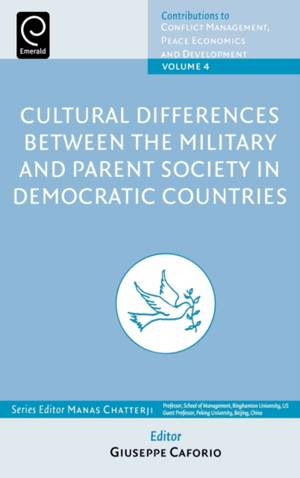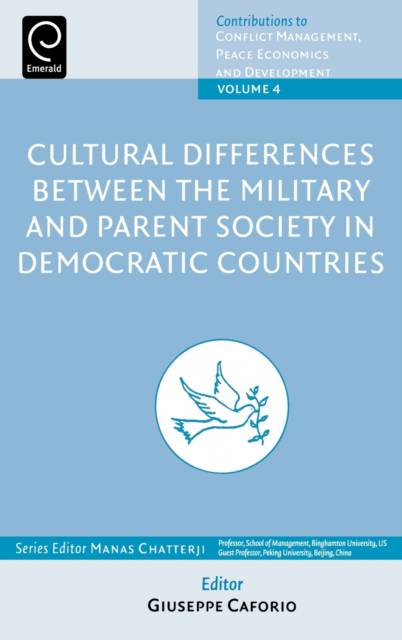
En raison d'une grêve chez bpost, votre commande pourrait être retardée. Vous avez besoin d’un livre rapidement ? Nos magasins vous accueillent à bras ouverts !
- Retrait gratuit dans votre magasin Club
- 7.000.000 titres dans notre catalogue
- Payer en toute sécurité
- Toujours un magasin près de chez vous
En raison de la grêve chez bpost, votre commande pourrait être retardée. Vous avez besoin d’un livre rapidement ? Nos magasins vous accueillent à bras ouverts !
- Retrait gratuit dans votre magasin Club
- 7.000.0000 titres dans notre catalogue
- Payer en toute sécurité
- Toujours un magasin près de chez vous
Cultural Differences Between the Military and Parent Society in Democratic Countries
299,95 €
+ 599 points
Description
This book is a report of cross-national research on the civil-military cultural differences in democratic societies, particularly centred on the attitudes of national elites, here considered as being mainly composed of professionals. The research studies the question: What are the differences between the values, opinions and attitudes of military officers and those of professionals belonging to other categories? What is the effect of these differences on society in each country, and on the national security sector? What are the current trends of this gap? Researchers investigated a sample of cadets at military academies and their generational peers at civilian universities (future elites). An expert survey was also employed to sample present elites, both civilian and military.The report is divided into three parts: the first describes the methodological aspect of the research; the second part, taking a comparative international approach, analyses the results of the research with respect to the main survey themes; the third part continues the volume by examining specific national themes in the context of the results of the cross-national comparison developed in the preceding part. In a final chapter, the data of the expert survey has been compared with the data that emerged from the survey of future elites, to glean elements for a general summary and evaluation on the cultural gap. This is the first cross-national research outside the U.S. on civil/ military cultural differences. It is a significant comparison of the attitudes of present and future elites on security matter. It provides a deep understanding of national specificities of the 13 participating countries on the military issues.
Spécifications
Parties prenantes
- Editeur:
Contenu
- Nombre de pages :
- 376
- Langue:
- Anglais
- Collection :
- Tome:
- n° 4
Caractéristiques
- EAN:
- 9780444530240
- Date de parution :
- 01-06-07
- Format:
- Livre relié
- Format numérique:
- Genaaid
- Dimensions :
- 156 mm x 234 mm
- Poids :
- 698 g

Les avis
Nous publions uniquement les avis qui respectent les conditions requises. Consultez nos conditions pour les avis.





